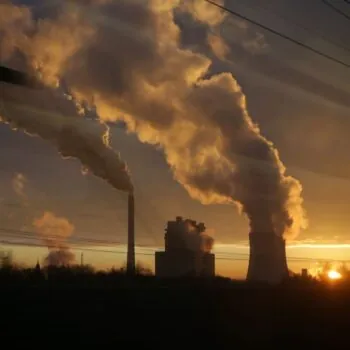Germany is performing worse on coal phase out than the USA, despite the pro-coal rhetoric of the Trump Administration, and is falling further behind its peers in Canada, France, Italy and the UK.
The fourth edition of E3G's G7 coal scorecard report looks in depth at the situation in Germany and the importance of the ‘Coal Commission’ process currently underway. In a striking contrast to its leadership on renewables, we find that Germany lies in sixth place out of seven in our ranking, with no substantial change in overall performance since our 2017 report.
Our review of the coal phase out debate in Germany highlights that it scores poorly due to entrenched opposition from major utility companies and coal sector interests. Following years of denial and delay they are now seeking to dilute pollution regulations and disrupt the context of the new Coal Commission.
Germany’s self-image as a climate leader is contradicted by its slowness to act on coal. The German Federal Government needs to grasp the nettle of the coal transition and move away from its passive approach. It can draw on the policy insights and industry experience of its more proactive peers as it determines its own way forward:
- As the largest user of coal power generation in Europe, Germany’s decisions on its domestic coal phase out will have broader significance. Germany’s actions on coal can unlock action by its near neighbours in central and eastern Europe and enable enhanced EU emissions reductions. Internationally, Germany can provide a positive example that heavily industrialised economies can successfully transition away from coal.
- Canada’s co-creation and leadership of the Powering Past Coal Alliance with the UK has been a substantial initiative that has enabled it to cultivate positive cooperation with sub-national actors in the USA and advance the international debate on coal phase out. Germany will need to consider how it can align its domestic coal phase out efforts with the Alliance’s recognition of the need for an exit from coal by 2030 by OECD member countries.
- Over the past year Germany played a positive leading role by advocating for restrictions on coal finance from Asian Infrastructure Investment Bank (AIIB). If it can align its domestic actions with its international advocacy Germany will increase its influence and help catalyse an accelerated global coal transition.
- 2019 will see the G7 Presidency held by France and the G20 led by Japan. Germany has important economic and political relationships with both countries and can help secure an effective approach to climate action and economic growth that draws on its own G20 Presidency in 2017. But to do so it must decide if it will walk the walk on coal: this decision will be Chancellor Merkel’s climate legacy.
Figure 1 below presents the 2018 G7 coal scorecard ranking, which reviews the status of market drivers and government policies in each country to provide a comparable assessment of performance. We consider whether there is a risk of new coal power plants being constructed; whether existing coal power plants are being retired; and whether a country’s actions have a positive international impact. In light of real-world developments, this year we have also included a new sub-category that considers the Diplomatic Leadership positions of countries as part of our assessment of their International Impact.
Figure 1: G7 Coal scorecard assessment

Source: E3G Analysis
Compared to May 2017, our G7 coal scorecard assessment finds that:
- Canada has moved into joint first position alongside France, with significant progress on the international stage through commitments to increased climate finance for the coal-to-clean transition and its co-leadership with the UK of the Powering Past Coal Alliance.
- Italy has moved up a place to fourth (overtaking the USA) thanks to its commitment to phase out coal power generation by 2025 and its membership of the Powering Past Coal Alliance.
- All four of these G7 members are now committed to delivering a domestic coal phase out and are in the process of developing legislative and / or regulatory approaches to implementation.
- The USA drops from fourth to fifth position in the G7 scorecard ranking due to Italy’s improved performance. Positively, the structural transition away from coal in the US electricity sector continues at pace with continued retirements of existing coal power plants and no new coal plants under development.
- Germany remains in sixth place in the scorecard ranking with no substantial change in performance overall. Germany is performing more poorly than the USA, and is falling further behind the four leading G7 members. Some initial progress has been made in the private sector where major German insurance companies have taken important steps to begin limiting finance and insurance coverage to coal miners and utility companies dependent on coal power generation.
- Japan remains in last place in the scorecard, in an unwelcome position as the sole G7 country actively seeking to build new coal power plants at home and abroad. Japan has however also seen positive signs of progress with changes in policy by banks, insurance companies, and project developers. Politicians are beginning to recognise that there is a need to move from coal to clean energy, but this is yet to translate into government policy. As holder of the G20 presidency next year, Japan can start to regain its coveted climate leadership reputation by committing to a moratorium on new coal power generation at home and abroad.
Investment trends across the G7 confirm the continuing transition away from coal. Our data analysis finds that:
- Cancelled: An additional 6.5 gigawatt (GW) of proposed new coal plant capacity has been cancelled, totalling 71GW since 2010. Japan remains the only G7 country pursuing investment in new coal-fired electricity generation, with 3.5GW having recently entered operation. But even Japan is seeing a growing number of delays and cancellations of proposed new coal plants, now totalling 7GW.
- Already retired: Overall, 131GW of coal capacity has already closed since 2010. Coal power plant retirements are the dominant structural dynamic in the electricity sector, a trend shared by the rest of the G7 beyond Japan.
- Planned retirements: A total of 86GW of coal capacity is set to close, or which half is a result of political commitments by national and regional governments.
Our review of progress over the past year has found that the underlying structural transition away from coal remains strong, with increased political commitments and diplomatic cooperation by national and regional governments across the G7, including through the new Powering Past Coal Alliance.
Progressive G7 members can continue to accelerate the transition away from coal power generation, with immediate opportunities including:
- The Energy Policy reviews of the European Investment Bank (EIB) and European Bank for Reconstruction and Development (EBRD) can be used to tighten restrictions on coal lending. Collectively, members of the Powering Past Coal Alliance hold 68% of the shareholding of EIB and 45% of EBRD.
- France holds the G7 presidency in 2019, presenting an opportunity to align private sector restrictions on coal finance with government support for the coal-to-clean transition. President Macron has made positive statements on the necessity of the transition away from coal, including highlighting the risk of investment in coal by China’s One Belt One Road Initiative. French private sector actors are similarly taking a leadership position on coal finance and utility strategy.
Read the report
Download G7 Coal Scorecard 2018 – Fourth Edition: Decision time for coal in Germany [PDF, 1.5MB]


